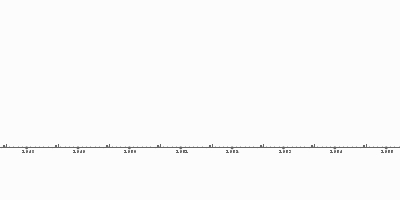The Prague Spring (5 ene 1968 año – 21 agos 1968 año)
Descripción:
The Prague Spring began in January of 1968 and was a period of political and economic liberalization in Czechoslovakia, eventually ending amidst the invasion of the country by the Soviet Union and other Warsaw Pact countries on August 20, 1968. The commencement of the Prague Spring was a result of acute economic problems after Antonín Novotny, Czechoslovakia’s communist leader, failed to improve the country's economy in the 1960s. Reformers within the Communist Party of Czechoslovakia created a new set of economic principles that were obligatory for Novotny to accept. These economic principles included propositions to replace the rigid command economy with a mixed economy; economics professor Ota Šik, a prominent figure among the reformers, proposed this idea. Other propositions intended to liberalize the country were posed, though Novotny only implemented a few, therefore Czechoslovakia’s extensive economic problems persisted. The immediate trigger for Novotny’s downfall – and consequently the start of The Prague Spring – was growing unrest in Czechoslovakia’s cultural and governmental sectors.Novotny resigned as first secretary in October 1967, feeling isolated and powerless after the Soviets rejected his proposition to join together and defeat the Slovaks – whom he clashed with during the Central Committee. Alexander Dubčeck was elected unanimously by the Central Committee on January 5, 1968, and was unexpectedly accepted by the majority of the public who were turning increasingly against the status quo. By April 1968 reformers had gained superiority, putting many of them in governmental positions. The new reformist government under Dubčeck achieved many things, one of the most significant being the Action Program, embodying many of the ideas developed in the preceding years that Novotny did not accept. The Action Program also implemented a strict division of powers: the National Assembly now made the governmental decisions, rather than the Communist Party, courts were created to be independent and act as a mediator between the legislative and executive branches. The Prague Spring was somewhat of a revolution, the liberalization movement occured because of civil unrest and was heavily unprecedented and unexpected.
-- Macy Lawrence
Works Cited
Image: Fritz, Jeff. “THE PRAGUE SPRING and the SOVIET INVASION of 1968 | Prague Extravaganza Free Tour.” Prague Extravaganza Free Tour, 19 Aug. 2016, extravaganzafreetour.com/the-prague-spring-and-the-soviet-invasion-of-1968/.
The Editors of Encyclopedia Britannica. “Prague Spring | Czechoslovakia History.” Encyclopædia Britannica, 7 Mar. 2018, www.britannica.com/event/Prague-Spring.
Añadido al timeline:
fecha:
5 ene 1968 año
21 agos 1968 año
~ 7 months
